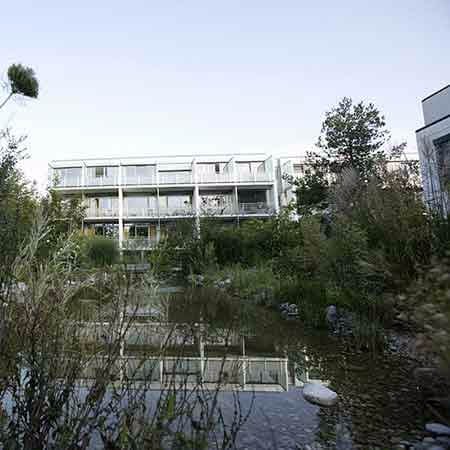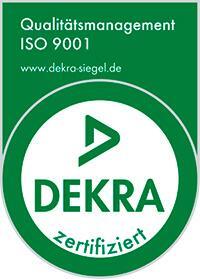Kidney stone disease is the most common urologic condition. This accounts for 50% of all hospitalizations for urinary system diseases. Kidney stones may not cause any symptoms for a long time. But if a stone enters the ureter, the organ can be completely blocked. This may result in renal colic and hydronephrosis, an expansion of the renal pelvis due to impaired urine outflow. The kidney becomes enlarged, and, without timely treatment, an infection joins, and renal parenchyma atrophy develops. You can undergo your treatment of kidney stones with hydronephrosis in Germany to get rid of urolithiasis and avoid its complications.
Content
- Decompression of the renal pelvicalyceal system
- Treatment of infected hydronephrosis
- Stone removal
An urgent decompression is required for eliminating hydronephrosis. This is performed using one of the following two methods: ureteral stent placement or a percutaneous nephrostomy. After the elimination of hydronephrosis and inflammation, doctors perform procedures and operations to remove all remaining stones.
You can undergo your treatment in the following hospitals: University Hospital of Ludwig Maximilian University of Munich, University Hospital Ulm, or Urology Clinic Munich-Planegg.
You are welcome to use the services of the Booking Health company, and we will take care of the organization of your trip. We will help you to select the most suitable clinic, quickly make an appointment, apply for a visa and prepare medical documents. We will also take care of your flights and transfers, select apartments, provide interpreting services and medical insurance, and control the treatment process. During your stay in Germany, you can contact your personal coordinator 24/7 with any questions.
Decompression of the renal pelvicalyceal system
When a stone obstructs the ureter, urine accumulates in the kidney. It increases pressure in the pelvicalyceal system and damages the renal parenchyma. Doctors urgently perform decompression of the renal pelvicalyceal system to prevent complications. They should ensure the outflow of urine using one of the following two methods:
- ureteral stent placement is performed retrogradely, through the urethra into the ureter; the stent carries urine to the bladder;
- percutaneous nephrostomy involves a puncture in the lower back and the placement of a tube to drain urine into the reservoir.
When treating children, stents are preferred. In adult patients, both treatment options can be used. They are equally effective and safe.
Treatment of infected hydronephrosis
Hydronephrosis can be aseptic or infected. Infected hydronephrosis is more dangerous for a patient's health, as this condition causes kidney inflammation, and the infectious process can spread to other organs.
Renal decompression procedures are the same. Some doctors believe that a percutaneous nephrostomy is safer than a ureteral stent in these situations. But so far this hypothesis has not been proven by research. Therefore, the guidelines of the European Association of Urology recommend both methods of decompression for infected hydronephrosis.
Patients additionally receive antibiotic therapy. Initially, this is prescribed empirically: doctors use drugs against the most common pathogens of urinary infections. After receiving the results of a bacteriological study, the therapy regimen can be adjusted, as a doctor receives data on the sensitivity of the isolated microflora to various antibiotics.
The final treatment of kidney stones is possible only after the complete suppression of the infectious process. Until that time, doctors only provide a normal urine outflow from the kidney using a stent or a nephrostomy.
Stone removal
The final treatment of kidney stone disease involves the removal of the remaining stones. If they are left, other stones may be stuck in the ureter, and the problem of hydronephrosis will recur.
Stone can be removed only after the management of hydronephrosis and the elimination of infection. The main options are as follows:
- antegrade nephroscopic stone removal through a skin puncture in the lumbar region;
- retrograde stone removal through the urethra (retrograde intrarenal surgery);
- laparoscopic stone removal through short skin incisions;
- open surgical stone removal is rarely used in Germany, and, in most cases, stones can be removed with a minimally invasive method.
Sometimes the stones are too large, so they must be crushed. In such situations, doctors resort to contact lithotripsy. Doctors use ultrasonic and pneumatic lithotripters, and in specialized centers, they apply a holmium laser to reduce trauma and the risk of bleeding.
With suspected kidney stones with hydronephrosis, you can undergo your diagnostics, treatment and rehabilitation in Germany. There are a few reasons for you to undergo your treatment in this country:
- modern minimally invasive procedures;
- high-quality equipment allows doctors to eliminate hydronephrosis and kidney stones more safely;
- most patients do not require any surgery: the treatment is carried out from the inside of the urinary tract or through a puncture in the lower back;
- should surgery be required, this will be performed using a minimally invasive laparoscopic method;
- adequate pain relief, symptomatic therapy, quality care and comfortable conditions in German hospitals.
You are welcome to use the Booking Health service to find prices and choose the most suitable hospital. The cost of treatment will be lower for you due to the lack of additional fees for foreign patients. Please leave your request on the Booking Health website: our specialists will contact you on the same day, advise on all issues, help you to choose the most suitable clinics in Germany and arrange your trip.
Authors:
The article was edited by medical experts, board-certified doctors Dr. Nadezhda Ivanisova and Dr. Sergey Pashchenko. For the treatment of the conditions referred to in the article, you must consult a doctor; the information in the article is not intended for self-medication!
Sources:
WHO - World Health Organization
The Lancet
















